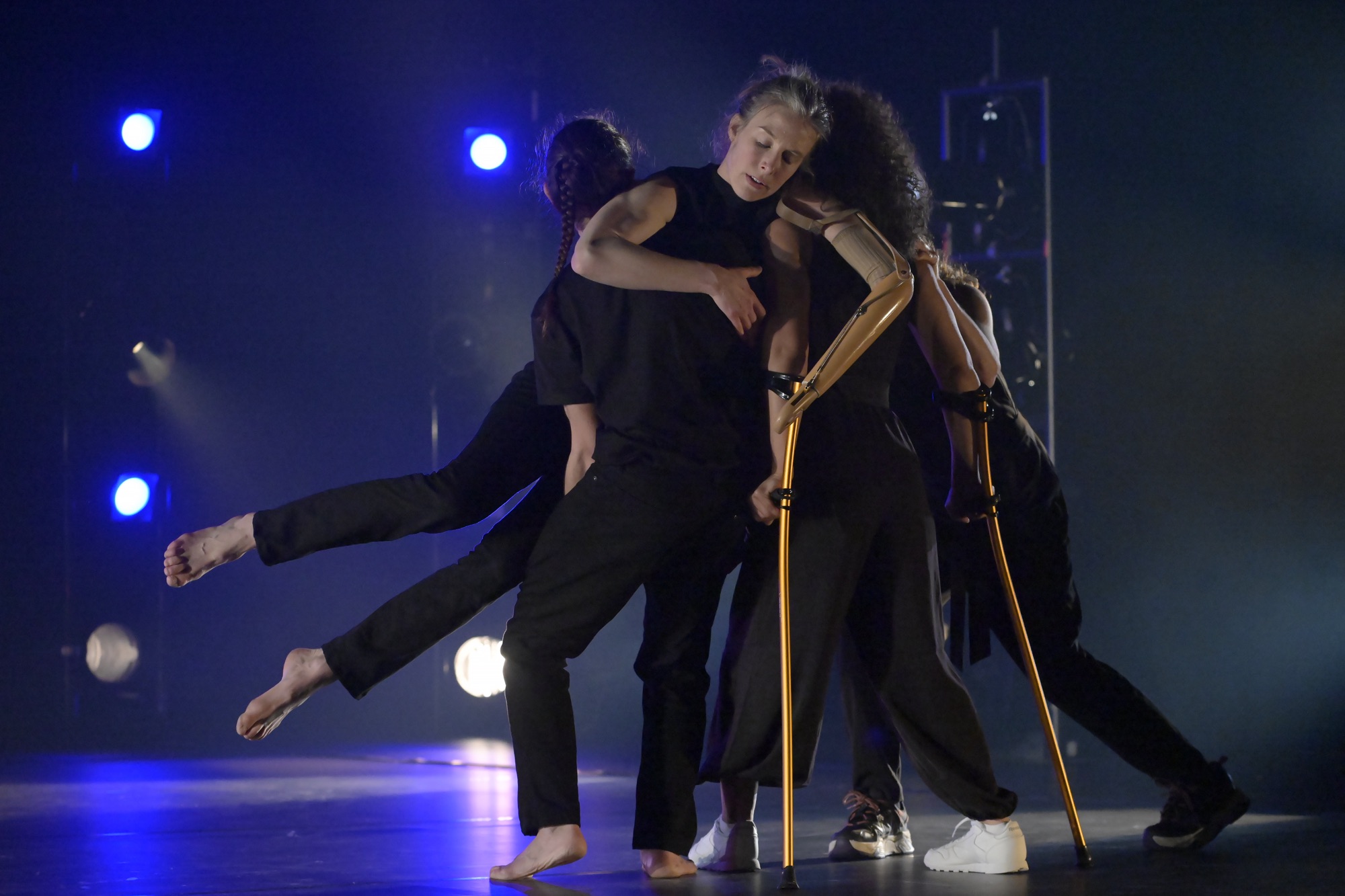Words by Bengi Sue Sirin.
When asked why they dance, dancers often describe a sense of freedom, liberation or release. Concepts that are very Utopian. Annie Hanauer’s latest piece A Space for All Our Tomorrows explores the dance/Utopia relationship with an extra emphasis on stage-as-Utopia, with a brilliant cast of differently-abled dancers who dance her vision into reality at The Place.
Hanauer, who has danced and choreographed for companies including Candoco, Mobius and Theater Munster, is passionate about inclusivity within artistic practice. She certainly builds a safe and embracing space for her fellow dancers in the piece. The three of them navigate movement with collaboration and care. They are accompanied by an on-stage singer, Deborah Lennie, who at times takes us to a place similar to the feels of Anohni and the Johnsons. There is also a variety of voiceovers in different languages (all captioned of course). In this way amongst others, the piece truly feels a welcoming space for all.
Beyond that, A Space for All Our Tomorrows also utilises some beautiful movement moments to, in Hanauer’s words, disrupt assumptions of what a dancing body is. When I close my eyes and visualise the piece, I predominantly remember entwined shapes. A cat’s cradle, a tide, a pretzel… All brought to life with the energy of dance. Then at points a solo or a duet gently breaks out, bringing a new perspective.
Laila White mesmerised both in the group, extending her crutches into steely angel wings, and on her own, using the floor and the music to present a percussive solo. Giuseppe Comuniello showed both strength and vulnerability, supporting his fellow performers in Dali-esque camel-on-stilts shapes, and taking his solo moments to very personal places. And when I remember Hanauer I think of marvellous extended silhouettes, both alone and as part of the group. All shine; it is not about one any more than the others like many dance shows end up being. As in the piece’s name, it is ‘a space for all.’
For me, the defining theme of A Space for All Our Tomorrows is its commitment to support and collaboration amongst the dancers – and the freedom this launches them all into. The utopia of inclusivity, of collaborative choreography, of the stage.
